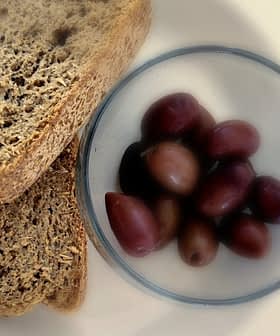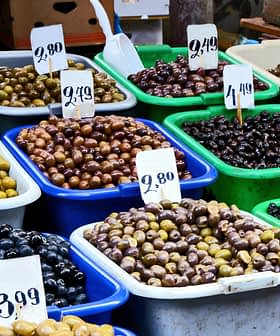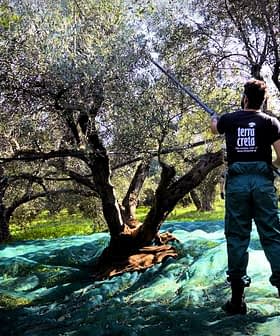SEVITEL: Unveiling Greek Olive Oil Abroad
SEVITEL, the Greek Association of Industries & Processors of Olive Oil, represents a key business interest in Greece, aiming to communicate the special qualities of Greek olive oils to the world. Despite being the third largest producer of olive oil, Greece focuses on producing higher quality extra virgin olive oil, with exports growing by 40 to 45 percent in the past four years, driven by the rising popularity of the health benefits of the Mediterranean diet.
Standing behind their country’s number one agricultural export, the members of the Greek Association of Industries & Processors of Olive Oil, known as SEVITEL, know they represent one of the most important business interests in Greece. A key part of the Greek culture, olive oil is entrenched in ancient Greek history and today is used in everyday modern cooking. SEVITEL’s members’ main challenge is to work together to communicate abroad that Greek olive oils have special qualities and benefits like no other. It is a key vision for the non-profit organization, since 85 percent of the packed oil that is sold in the Greek market and internationally, comes right from Sevitel’s 53 members.
“Once you get involved with olive oil I think it starts circulating in your veins.”
Gregory Antoniadis, SEVITEL’s president for the past seven years, says his first job in the Greek food industry began as an olive oil buyer for Unilever more than 25 years ago. He has climbed the ranks since then, currently serving as that company’s Communications & Media Director.
“For us Greeks, olive oil is an important part of our culture, in our history, religion, everywhere. We also have the highest per capita consumption on earth at 14 kilos per head, babies included,” he says with a smile.
 Even with a rich history surrounding the use of olive oil, Greece remains the third in size producer behind Italy and Spain which is currently the world’s leading exporter of extra virgin olive oil. “We may be third but we produce proportionately higher quality extra virgin olive oil produced at 75 percent while Italy and Span have much less percentages. Our drawback is that we have higher costs but that’s because we invest in quality. At SEVITEL, we aim to communicate this special quality to the world.”
Even with a rich history surrounding the use of olive oil, Greece remains the third in size producer behind Italy and Spain which is currently the world’s leading exporter of extra virgin olive oil. “We may be third but we produce proportionately higher quality extra virgin olive oil produced at 75 percent while Italy and Span have much less percentages. Our drawback is that we have higher costs but that’s because we invest in quality. At SEVITEL, we aim to communicate this special quality to the world.”
Antoniadis says SEVITEL’s efforts are challenging given Greece’s slower start in producing and marketing olive oil compared to the other top olive oil producing nations.
He says Italy, which is the second largest producer of olive oil, had their first branded product in 1860 as Italian immigrants opened up groceries and sold their first bottles. However, Greece’s first national brands appeared a century later, in the 1960s and 1970s.
Spain, with its extensive cultivation and mechanization has enabled it to become the world’s biggest producer and exporter of olive oil. However, intensive cultivation is preferred in Greece and according to Antoniadis, a Greek farmer may need more time to produce their oil but in the end, he produces olive oils of better quality.
As a result of the way olive oil is typically produced and marketed, the presence of Greek brand-name olive oil on the international market had been minimal for many years. For the average consumer, branded Greek olive oil wasn’t as simple to find as Italian and Spanish olive oils.
“We have always been the advocates of market growth. The major challenge for Greece is to expand the markets externally and internally,” explains Antoniadis. “What we are undergoing is a crash course of understanding things in an abrupt way, especially in this crisis. We analyzed the past and know what needs to be done for the future. There is no room for more debate.”
As a result, Antoniadis says a major achievement for SEVITEL, was the growth of Greek olive oil exports by 40 to 45 percent over the past four years.
“Knowing that we started from a low base, we are being realistic about our expectations but growth is important and we are on the right track. We still must step up our marketing since few products are out there like olive oil, which has great potential for quick growth.”
He says a factor to that growth is the rising popularity of the health benefits associated with the Mediterranean diet, of which olive oil is a key ingredient. He says once the public is more aware of the special nature and variety of Greek olive oil, more consumers seeking value will make the choice towards Greek brands.
Antoniadis say the future of Greek olive oil is also in the taste. “It’s not just about convincing people that it’s healthy but that it is also tasty.”
“We need to capitalize on the quality of Greek olive oil. We are exporting half of our production abroad in bulk of course, not branded, and it’s been used by others which is understandable since this is how international globalization works.”
Ninety percent of Greek olive oil is exported to the European Union, 80 percent in bulk plus 10 percent as Greek brand name olive oil. Exports are increasing to other countries as well, such as Canada, Australia, Japan, China, India and the US. “We are by far small exporters but there is opportunity for us to grow,” says Antoniadis. “Now, it’s a matter of tapping that opportunity.”
.
Photos: Marissa Tejada Benekos










